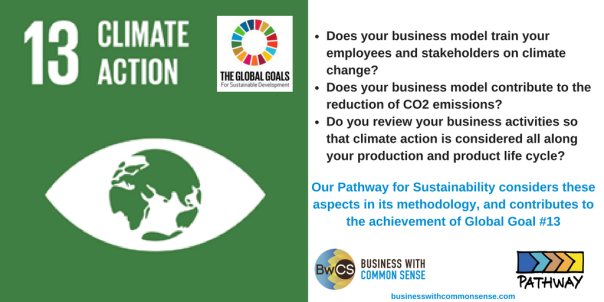
The Pathway and the SDG’s. Goal 12: Responsible Consumption and Production.
At Business with Common Sense we have developed a tool to create sustainable business models, the Pathway for Sustainability. It’s adressed to entrepreneurs and existing companies who want their business model to be socially, environmentally and economically sustainable. Here’s how our Pathway for Sustainability contributes to Goal #12: Responsible Consumption and Production.
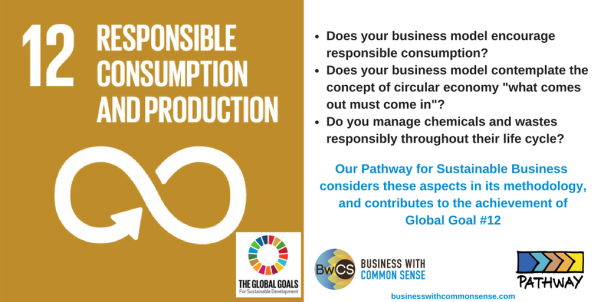
The Pathway for Sustainable Business and the SDGs. Goal 11: Make cities inclusive, safe, resilient and sustainable
At Business with Common Sense we have developed a tool to create sustainable business models, the Pathway for Sustainable Business. It’s adressed to entrepreneurs and existing companies who want their business model to be socially, environmentally and economically sustainable. Here’s how our Pathway for Sustainable Business contributes to Goal #11: Make cities inclusive, safe, resilient and sustainable.
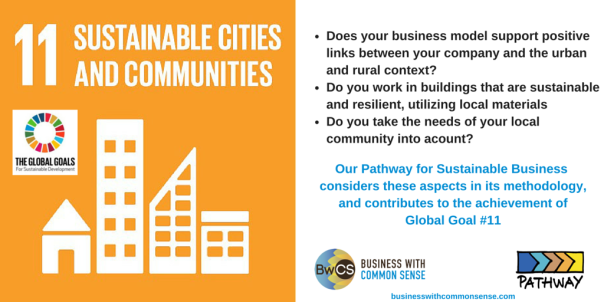
The Pathway and the SDGs. Goal 10: Reduced Inequalities

The Pathway and the SDGs. Goal 9: Innovation and Infrastructure
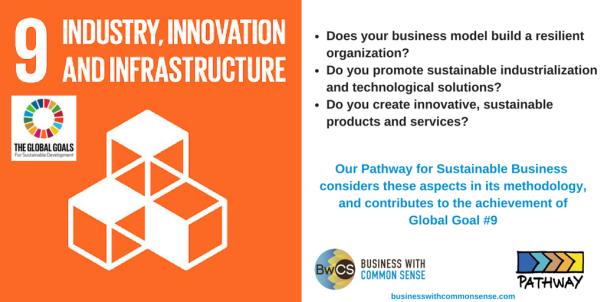
The Pathway and the SDGs. Goal 8: Decent Work
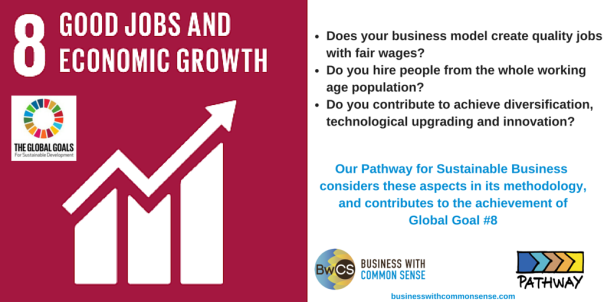
The Pathway and the SDGs. Goal 7: Clean Energy

The Pathway and the SDGs: Goal 6 Clean Water and Sanitation

Social vs Sustainable vs For-Profit vs B-Corporation
 Sometimes we’ve found it confusing to differentiate between social entreprises, sustainable businesses model, certified B-corporations and business as usual (plain for-profit companies). This is why we made this infographic. Just some comments:
Sometimes we’ve found it confusing to differentiate between social entreprises, sustainable businesses model, certified B-corporations and business as usual (plain for-profit companies). This is why we made this infographic. Just some comments:
- We shouldn’t confuse a sustainable business with a business that has developed a sustainability strategy. Granted, sustainable businesses usually have a sustainability strategy (which is their business strategy), but the other way round has proven not to be true (some unsustainable businesses have developed well known sustainability strategies). Implementing the Pathway for Sustainable Business, developed at BwCS (Business with Common Sense), would ensure that your business is on its way to become a sustainable business model, and that you can have a score to prove so.
- B-Corporations are companies that hold a B Corp certification (also known as B Lab certification or B Corporation certification), which is a private certification issued to for-profit companies by B Lab, a global non-profit organisation. To be granted and to preserve certification, companies must receive a minimum score on an online assessment for “social and environmental performance”, and integrate their commitments to stakeholders into company governing documents. (Source Wikipedia).
- The social business in this infographic follows Muhammad Yunus’ definition: they need to be economically self-sustainable (be a non-loss business), address a social challenge and also be a non-dividend company. Charities don’t fall into this description.
- The infographic does not contemplate charities, benefit corporations (a legal figure existing in part of the USA), other similar legal forms and cooperatives.
- The connecting lines are “must” lines, not “should” lines. That means: a social business must be a non-loss, non-dividend company, among other requirements. And it could also be a sustainable business.
Like said once, a company that produces shoes in a sustainable way (sustainable business) is not the same as a company that produces shoes in order to address a social need (social business).
Please feel free to comment if you think information is wrong or missing. We’re always happy to correct and learn.
The Pathway and the SDG. Goal #5
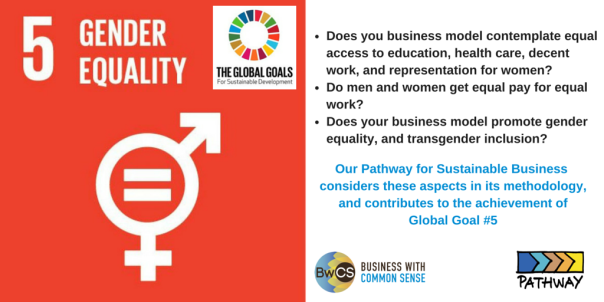
You must be logged in to post a comment.